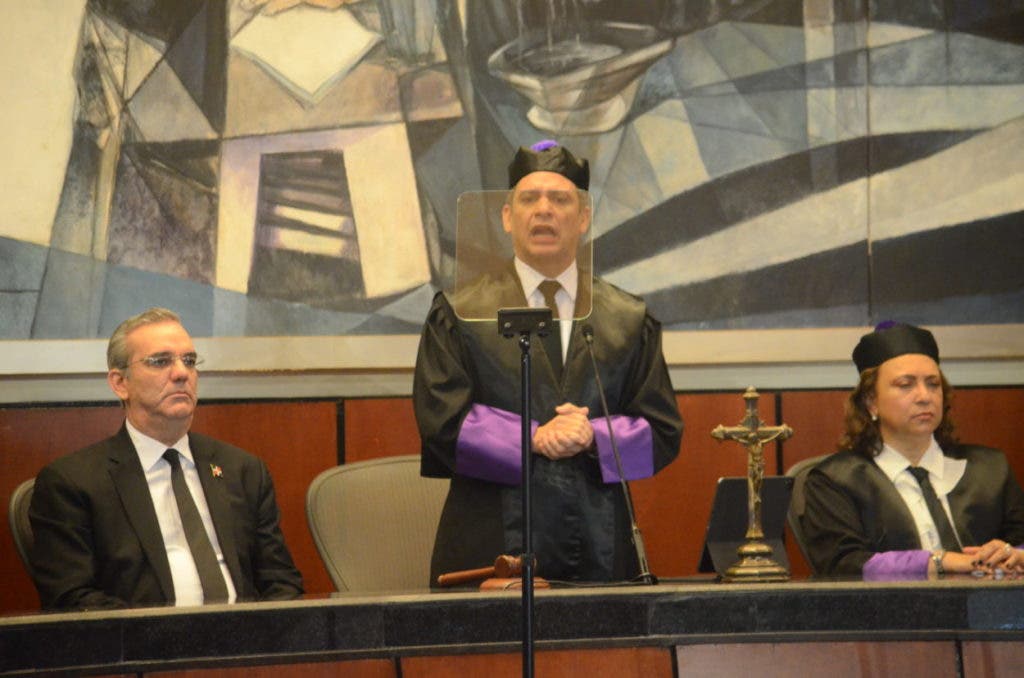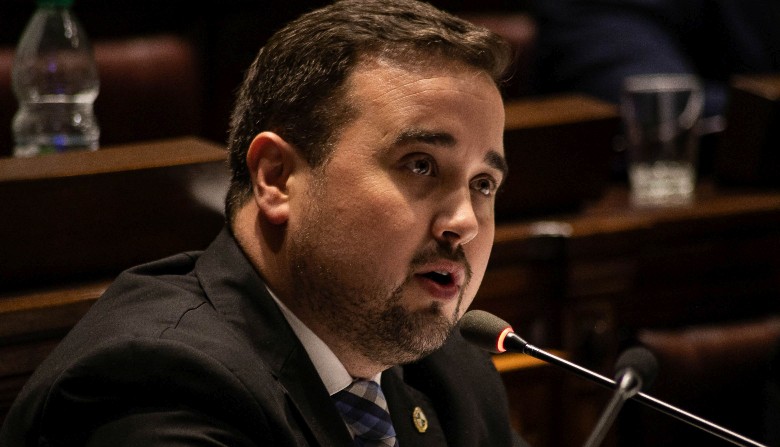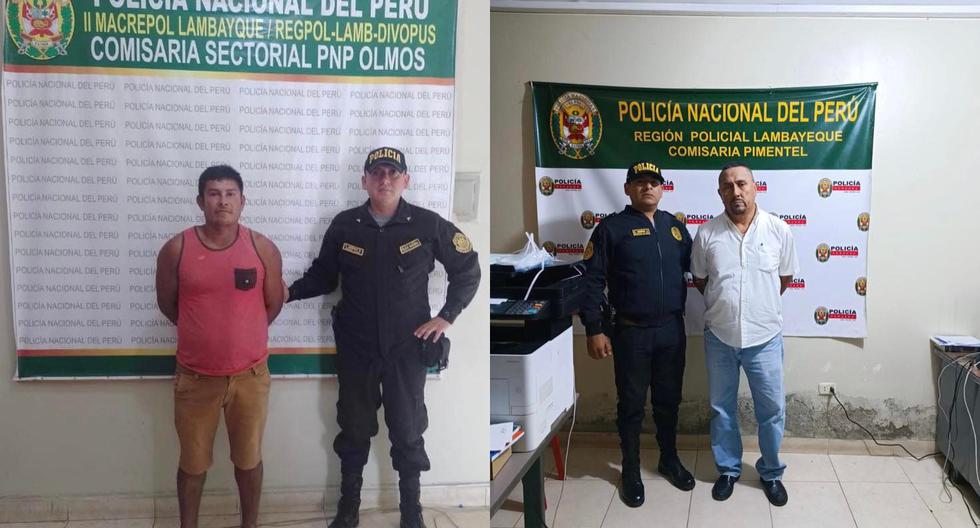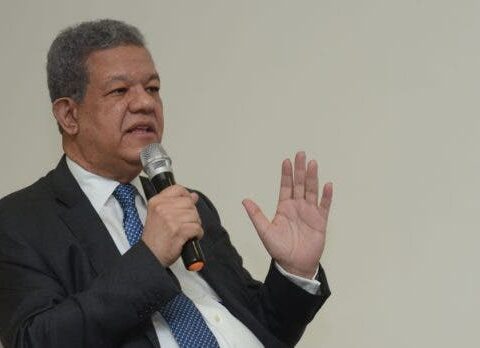The President of the Supreme Court of Justice (SCJ), Luis Henry Molinacommunicated the need to resolve “among all” the challenges that the judicial system has faced for decades, such as the situation of more than 16,000 people deprived of liberty without trial or conviction.
He assured that this is an issue that must be faced “with courage, joining efforts, improving coordination, strengthening each of the institutions and, above all, fostering trust and respect for each of the actors in the justice system.”
He also recalled that “the objective should not be to impose coercive measures, but to serve justice, promptly and in accordance with the rule of law.”
The Presiding Magistrate highlighted the work of the judges who said, “they must be the pride of the country” because “responsibly, they make the decisions that their conscience dictates, sometimes difficult and unpopular, but always seeking attachment to judicial protection effective and due process, the Constitution and the Law”.
In his annual speech, Henry Molina informed the country about the main transformations carried out in the institution, structured around three pillars: Zero arrears, 100% access and 100% transparency.
You might also be interested in: The Day of the Judiciary is celebrated with various acts
First goal: zero arrears
Henry Molina began by highlighting that in this goal, results that seemed impossible have been achieved.
“In the year 2020, the delay reached 18,357 files pending decision, some dating back to the year 1982. Today and abroad, 100% of the files pending hearing and decision seized before 2019 by the Second Chamber, Third Chamber, Plenary and Meeting Rooms. The First Chamber, which reported the highest arrears, resolved 73% of the cases,” explained Molina, while informing that this model of the Supreme Court is being replicated in all courts, which are reducing judicial delays in all departments. judicial.
The president of the Supreme Court also highlighted the approval of the law for the use of digital media, thanks to which it would be possible to have remote access and a standardized system for the comprehensive management of cases, saving transfers and allowing 24-hour online monitoring. , as well as enabling the option of virtual hearings in all matters, except criminal, for now.
“This law is the bridge between the justice of the past and the future. And to facilitate this change, the transformation will also be accompanied by better training and incentives to enhance the work of judges and servers ”, he assured.
Second goal: 100% access
Luis Henry Molina also explained the progress that is being made to guarantee justice that provides “full access to people, taking into account their possibilities and conditions. Enhancing the accessibility and proximity of services”.
With the Organic Law of Single Planning Regions and the entry into force of the digital justice option, progress will be made in that direction, he assured. Headquarters will be enabled according to the needs of the flow of cases and with a new management model, oriented towards people. The first new headquarters that will be the model of “justice that comes” is currently under construction in Santo Domingo Este.

Molina also pointed out the need to advance in alternative measures to the criminal trial. Giving the example of the United States, where only 10% of cases go to trial, while in the Dominican Republic the figure is the opposite: 87% go to trial, saturating criminal justice in an unsustainable way.
Third goal: 100% transparency
Luis Henry Molina recalled that improving levels of transparency is a suggestion priority from day one, so that judicial decisions can be widely respected, eliminating arbitrariness and rewarding good work. He assured that transparency is key to “building bridges of trust that bring justice closer to people.”
As measures applied in this area, he cited the updating of the Code of Ethical Behavior and the implementation of the Judicial Escalafon, “eradicating the possibility of clientelism.”
He also highlighted the implementation of a data culture in justice: “We already have a system that generates operational statistics, which are updated continuously and in real time. That is to say: the data that before were only used as historical references, are now used as indicators to direct the management”. These statistics are available on the website of the Judiciary.
All these measures have made it possible for the Judiciary to obtain 99.75% in the index of the transparency portal of the General Directorate of Ethics and Government Integrity.
The future of the justice system
Looking to the future, Molina concluded that a new Organic Law of the Judiciary is necessary that allows an efficient use of resources, improving access and the effectiveness of the response, with a judicial organization that responds to the needs of the people.
“We want justice to come closer and adapt more and more to people, to their needs. May it contribute to peace and stability and promote the development of the country”. “And on this path we count on the dedication and commitment of the more than 7,000 servers that make up this Judiciary and also of many other vital actors for its operation,” said Molina.
The event took place at the Palace of Justice of the Centro de los Héroes and was attended by the President of the Republic, Luis Abinader, the magistrates of the Judiciary, numerous members of the diplomatic corps, as well as other authorities and the media. .








